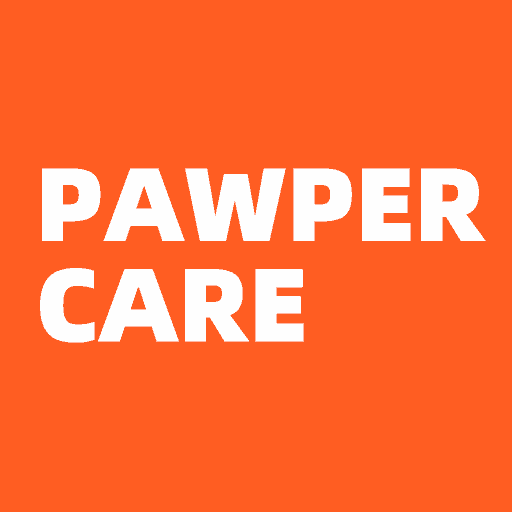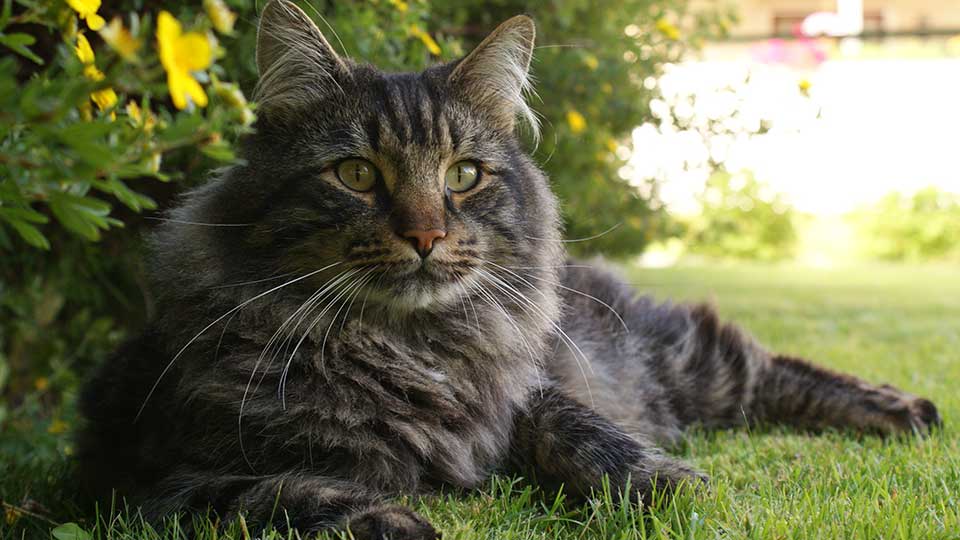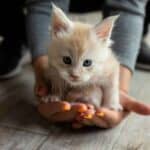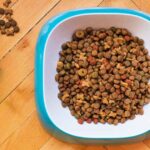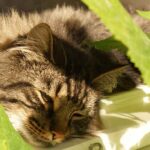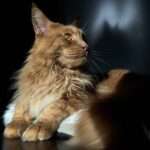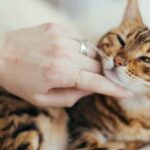If you have a Maine Coon cat, you probably consider them as a member of your family.
But as your Maine Coon cat gets older, they may face some health challenges and need some extra care and attention.
In this post, I will share some tips on how to take care of an elderly Maine Coon cat, based on my own experience and research.
How Old Can A Maine Coon Live?
The average lifespan of a Maine Coon cat is 12-15 years.
However, some Maine Coons can live longer than that, depending on their genetics, health, diet, and environment.
The oldest Maine Coon cat on record was Rubble, who lived to be 31 years old!
Of course, this is an exceptional case, but it shows that Maine Coons can have a long and happy life if they are well cared for.
Maine Coon Common Health Issues
Like any other breed of cats, Maine Coons can suffer from various health problems, especially as they age.
Some of the most common health issues that affect Maine Coons are:
Hip dysplasia
This is a condition where the hip joint does not develop properly, causing pain, stiffness, and reduced mobility.
It is more common in large and heavy breeds like Maine Coons.
It can be diagnosed by X-rays and treated by medication, surgery, or physical therapy.
Spinal muscular atrophy (SMA)
This genetic disorder causes muscle weakness and wasting in the lower limbs.
It affects the nerve cells that control the movement of the muscles.
It usually manifests in kittens between 3 to 4 months of age.
There is no cure for SMA, but supportive care can help improve the quality of life of affected cats.
Hypertrophic cardiomyopathy (HCM)
This is a form of heart disease where the heart muscle thickens and enlarges, impairing its function.
It can lead to heart failure, blood clots, or sudden death.
It is the most common cause of death in Maine Coons.
It can be inherited or acquired due to other factors such as obesity or hyperthyroidism.
It can be diagnosed by echocardiography and treated by medication or surgery.
Polycystic kidney disease (PKD)
This genetic disorder causes cysts to form in the kidneys, reducing their function.
It can lead to kidney failure, high blood pressure, or urinary tract infections.
It usually develops in middle-aged or older cats.
It can be diagnosed by ultrasound and treated by medication or dialysis.
These are some of the most common health issues that affect Maine Coons, but they are not the only ones.
Other possible health problems include obesity, arthritis, dental diseases, asthma, diabetes, and cancer.
Therefore, it is important to monitor your Maine Coon’s health regularly and consult your veterinarian if you notice any signs of illness or discomfort.
Caring for Elderly Maine Coon Cats
As your Maine Coon cat gets older, he or she may need some adjustments in their lifestyle and environment to make them more comfortable and happy.
Here are some tips on how to care for your elderly Maine Coon cat:
Schedule regular check-ups with your veterinarian.
Your vet can perform routine exams and tests to detect any health problems early and provide appropriate treatment.
Your vet can also advise you on the best diet and supplements for your senior cat.
Provide a balanced and nutritious diet.
Your senior cat may have different nutritional needs than when he or she was younger.
You may need to switch to a senior cat food that is lower in calories and higher in protein and fiber.
You may also need to add wet food or water to your cat’s diet to increase their hydration and prevent constipation.
Keep your cat hydrated.
Water is essential for your cat’s health, especially for their kidneys and urinary tract.
Make sure your cat has access to fresh and clean water at all times.
You can also use a fountain or a bowl that encourages your cat to drink more.
Maintain good grooming habits.
Your senior cat may have difficulty grooming himself or herself due to arthritis or other issues.
You can help your cat by brushing his or her fur regularly to prevent mats and tangles, trimming his or her nails to prevent overgrowth or injury, cleaning his or her ears and eyes to prevent infections, and brushing his or her teeth to prevent dental diseases.
Provide a comfortable and safe environment.
Your senior cat may become less active and more sensitive to temperature changes as he or she ages.
You can make your cat more comfortable by providing a warm and cozy bed, a litter box with low sides and soft litter, a scratching post or pad, and toys that stimulate his or her senses.
You can also make your cat safer by removing any potential hazards or obstacles, such as stairs, wires, or slippery floors.
Stimulate your cat’s mind and body.
Your senior cat may still enjoy playing and exploring, but at a slower pace and for shorter periods.
You can keep your cat mentally and physically stimulated by providing interactive toys, puzzles, or games that challenge his or her skills and instincts.
You can also spend quality time with your cat by petting, cuddling, or talking to him or her.
Show your cat love and affection.
Your senior cat may become more attached and dependent on you as he or she ages.
You can show your cat how much you love and appreciate him or her by giving him or her attention, praise, and treats.
You can also respect your cat’s preferences and boundaries, such as when he or she wants to be alone or cuddled.
What’s The Dietary Need For Elderly Maine Coon Cats?
As mentioned earlier, your elderly Maine Coon cat may have different dietary needs than when he or she was younger.
Here are some factors to consider when choosing the best diet for your senior cat:
• Protein: Protein is essential for your cat’s health, especially for their muscles, organs, and immune system.
Your senior cat may need more protein than younger cats to prevent muscle loss and maintain body function.
However, too much protein can also harm cats with kidney problems.
Therefore, you should choose a high-quality protein source that is easily digestible and low in phosphorus, such as chicken, turkey, fish, or eggs.
• Carbohydrates: Carbohydrates are a source of energy for your cat but are not essential for survival.
Your senior cat may need fewer carbohydrates than younger cats to prevent obesity and diabetes.
However, some carbohydrates can also provide fiber and antioxidants to benefit your cat’s digestion and overall health.
Therefore, you should choose complex carbohydrates low in sugar and fiber, such as brown rice, oats, barley, or vegetables.
• Fats: Fats are another source of energy for your cat, as well as a source of essential fatty acids that support their skin, coat, joints, and brain.
Your senior cat may need more fats than younger cats to maintain body temperature and prevent dry skin.
Remember not to overfeed too much fat, which can cause obesity and pancreatitis.
Therefore, you should choose healthy fats rich in omega-3 and omega-6 fatty acids, such as fish oil, flaxseed oil, or olive oil.
• Vitamins and minerals: They are vital for your cat’s health, as they perform various bodily functions.
Your senior cat may need more vitamins and minerals than younger cats to prevent deficiencies and support their immune system.
You should choose a balanced diet that provides the right amount of vitamins and minerals for your cat’s age and weight.
• Supplements: Supplements are unnecessary for your cat’s health if they eat a balanced diet that meets their nutritional needs.
However, some supplements may benefit your senior cat if they have specific health issues or conditions.
For example, glucosamine and chondroitin supplements may help your cat with arthritis by reducing inflammation and joint pain.
Probiotics supplements may help your cat with digestive issues by restoring the balance of good bacteria in their gut.
Antioxidant supplements may help your cat with aging issues by protecting their cells from oxidative stress.
Final Thoughts
Maine Coon cats are wonderful pets that can bring joy and companionship to your life.
As they get older, they may face some health challenges and need some extra care and attention.
